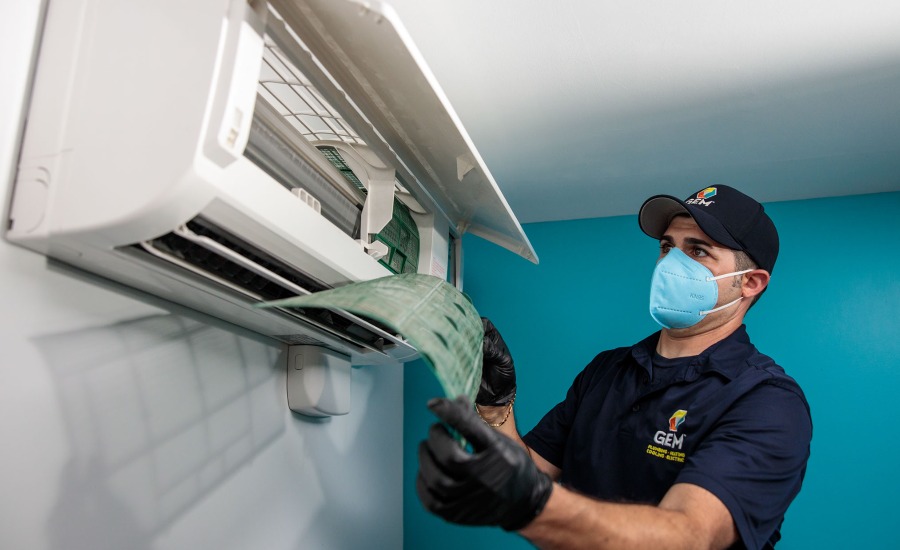Three simple tips for anyone who wants to be an HVAC tech

Being new in any industry is daunting — but especially in the trades, where experience is invaluable. Many skills must be learned first-hand on the job and can take years to develop. However, experienced HVAC professionals have a wealth of industry knowledge and skill to share for the benefit of new technicians entering the field.
Seasoned technicians recently shared some trade skills and unique insights into how apprentices can set themselves up for success. Let’s look at three tips every new technician needs to consider before heading out on the job.
While more advanced tools are typically provided by employers few reliable everyday essentials in your tool kit will ensure you’re always prepared on the job.
Tip #1: Bring Your Own Toolbox
It may seem simple, but this tip can be easily overlooked. While new technicians usually aren’t expected to have bigger tools of their own, such as a vacuum pump or recovery machine, they should carry a small tool bag with the essentials. Plus, it’s important to note that sharing of tools often is frowned upon—especially since COVID-19.
With that in mind, pros suggest that new techs invest in a few essentials:
- Screwdrivers—an 11-in-1 multi-bit screwdriver is particularly useful
- Pliers
- Flashlight
- Personal protective equipment (PPE)—safety gloves, safety glasses and a hardhat
- A pen and small notepad
Remember, it’s also important to know how to safely use all of the essential trade tools. If you’re introduced to a new tool, ask questions and learn about how it works—even if that means watching YouTube videos on your own time.

Dustin Klein, who manages teams of technicians at both GEM and Haller and has been in the field for 10 years, encourages his apprentices to be resourceful. “We live in a world where our answers are at our fingertips. Whether it’s dialing the phone to ask a mentor or co-worker or searching the internet,” he says.
Although not all tools are carried in a bag or require a learning curve. Ken Kontra, who has been in the field for more than 40 years, shared that his most important tool is his ears.
“Not only do you need to listen to the mechanical sounds of the equipment, it is also as important to listen to the needs of the customer,” says Kontra. “Often the solution will be found faster by hearing what the customer has to say.”
When you’re just starting out in the field, get a jump-start by absorbing as much information from your fellow technicians as possible.
Tip #2: Show Your Willingness to Learn
Listening to your customers is critical. But even more important? Listening to your senior technicians. Klein advises new techs to ask questions—and lots of them. “Ask as many questions as you need and to as many mentors or trainers as you can,” says Klein.
Kontra also suggests apprentices build their reputations by building customer and industry relationships with a simple golden rule: treat customers and coworkers as you would like to be treated. Apprentices can go above and beyond by working quickly and efficiently, making sure the appropriate tools for the project are ready and easily accessible, and keeping the worksite clean. This impresses coworkers as well as customers.
Experienced pros also stress continuously building your knowledge and learning new skills. For example, Haller offers training courses for every level—from apprentice to seasoned pro. Organizations such as the North American Technicians Excellence (NATE) and the American Society of Heating, Refrigerating, and Air Conditioning Engineers (ASHRAE) offer certification to HVAC technicians, as well as courses, webcasts and job postings. Technicians who complete courses and certifications through these organizations are highly sought-after.
The key to HVAC repair and maintenance work often lies in the details. Be mindful on the job—with both equipment and your customers.

Tip #3: Be Detail-Oriented
Kontra reminds his apprentices to be determined, methodical and never take shortcuts. “Do your best the first time,” he says. “Always take pride in your work.”
Even the little details are important—both in repair and installation and customer service, like remembering the customer’s name and service history. And being focused on the intricate steps, such as diagnosing a problem and servicing a system, will help you confidently relay the information to the customer.
Being thoughtful goes a long way. Even experienced technicians should remember to treat every call as a test of their knowledge and be mindful of the details, advises Kontra.
One Last Bit of Advice …
Learning from those more experienced in the trade is essential to the success of an apprentice’s career. If you’re wise, you will build a lasting relationship with the mentors and senior technicians who are advising you now. Courses and certifications help build knowledge, but they can never replace first-hand on the job experience and skills.

